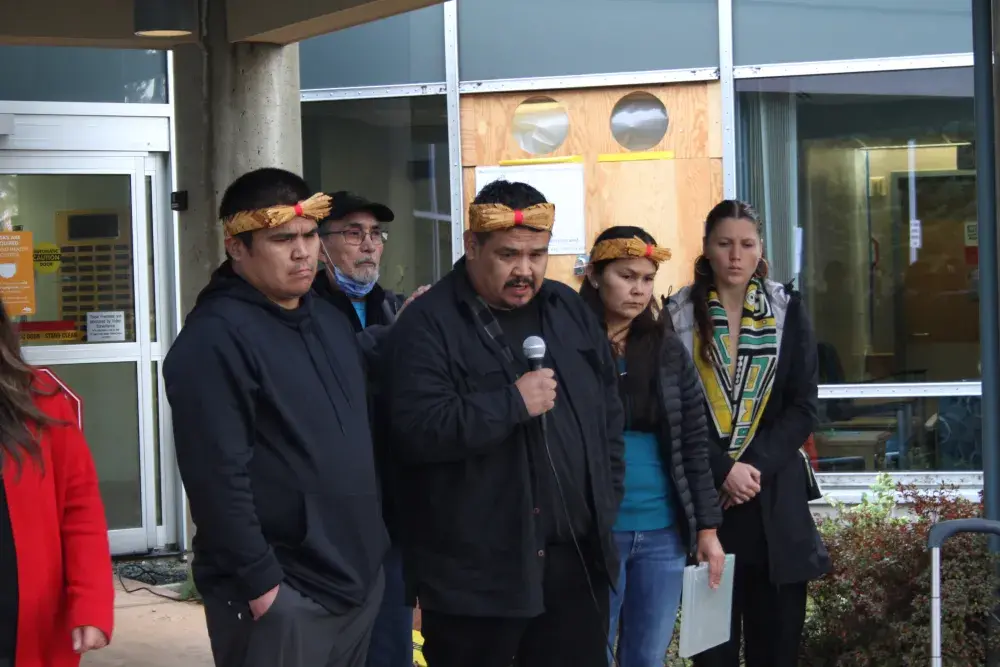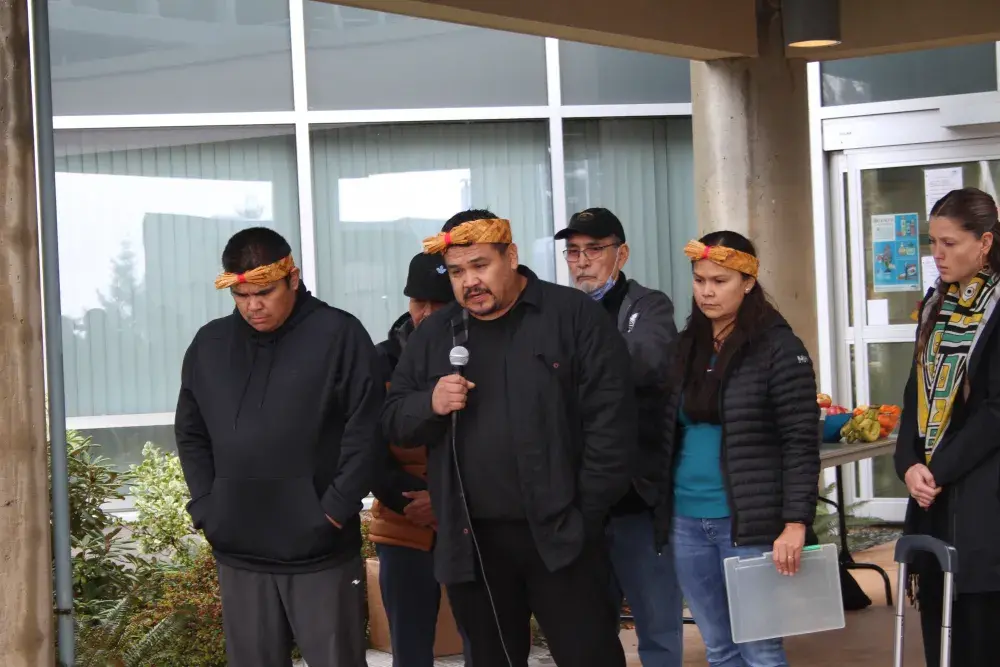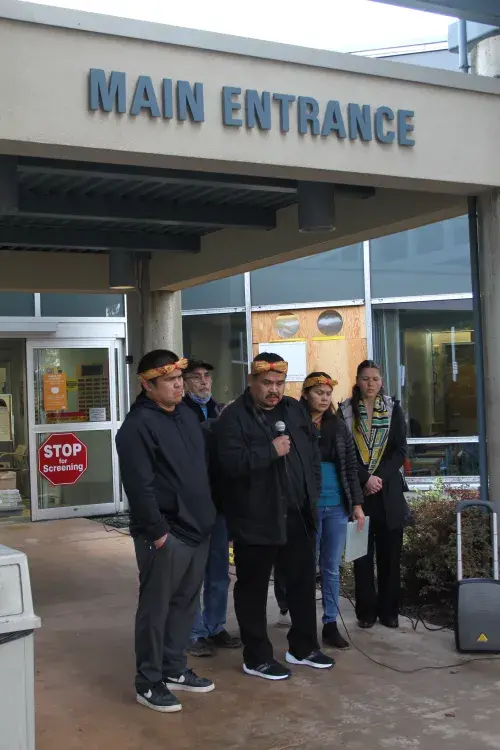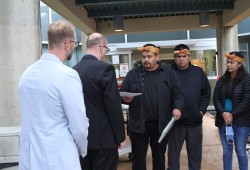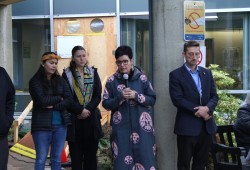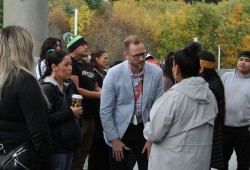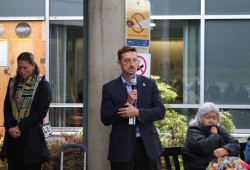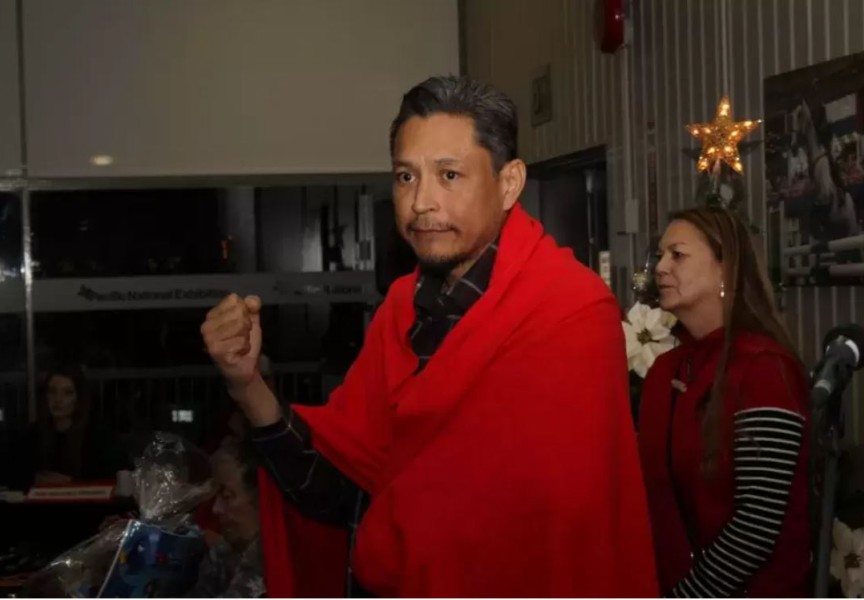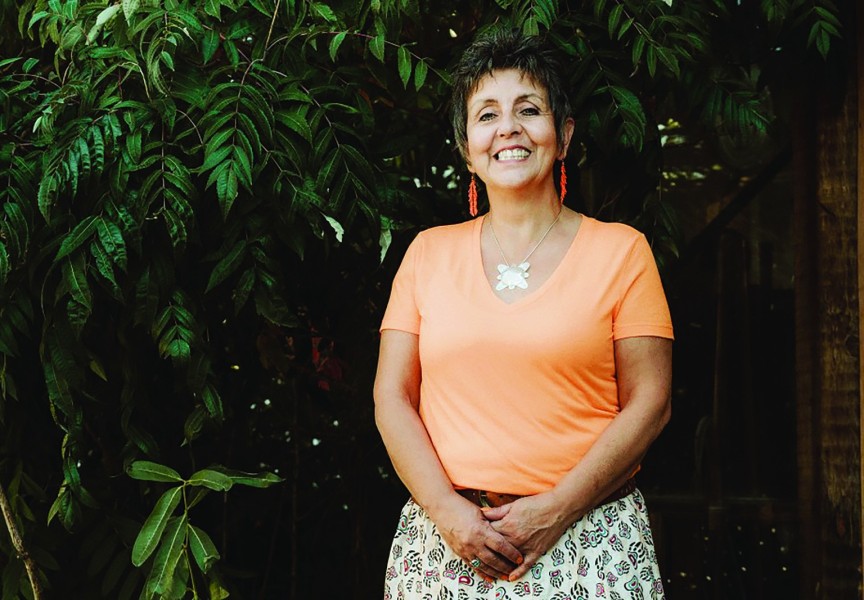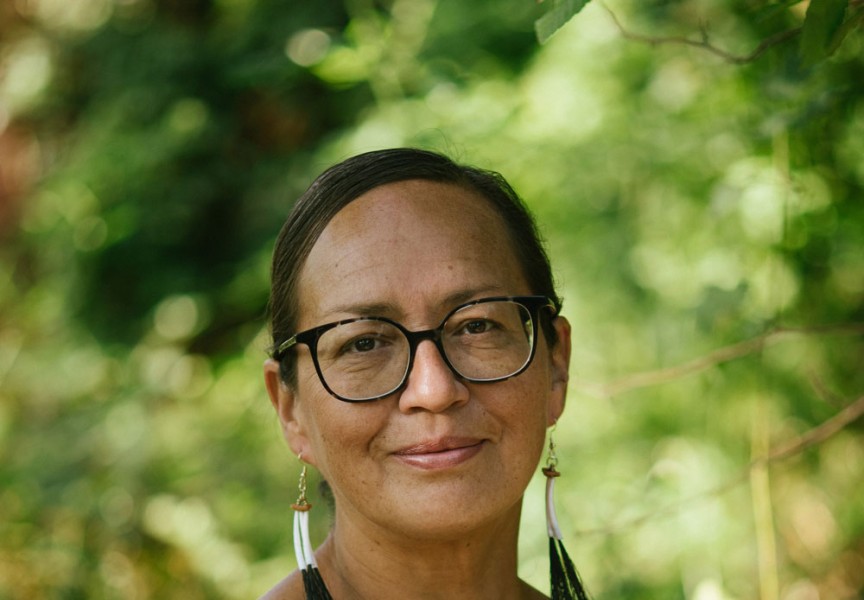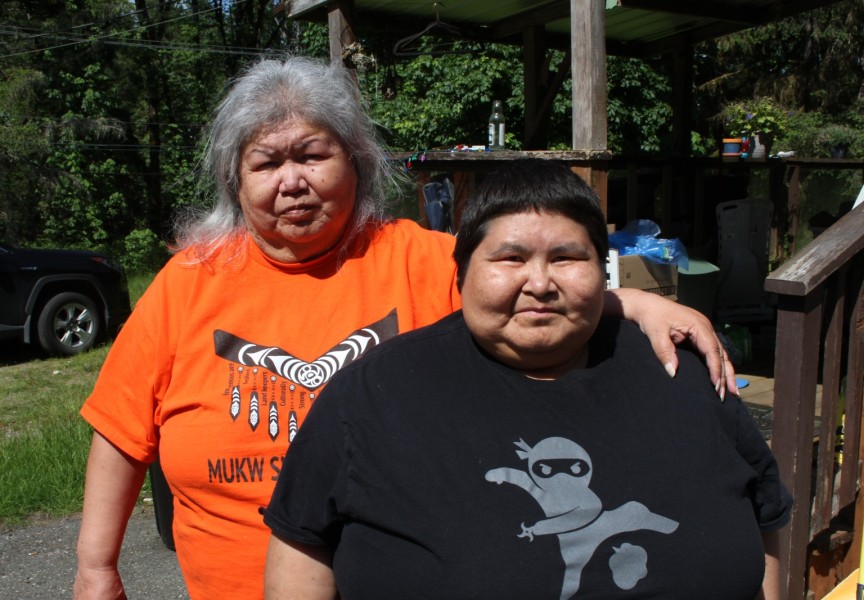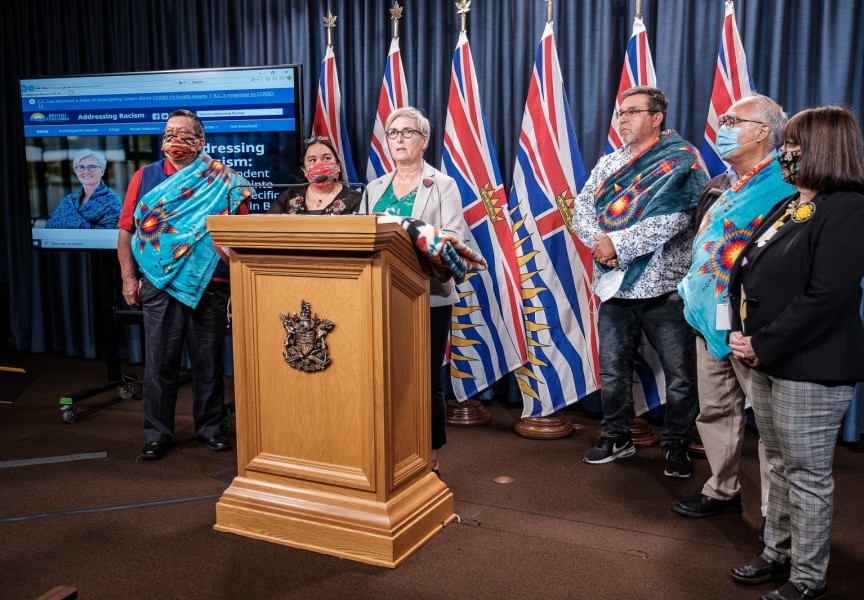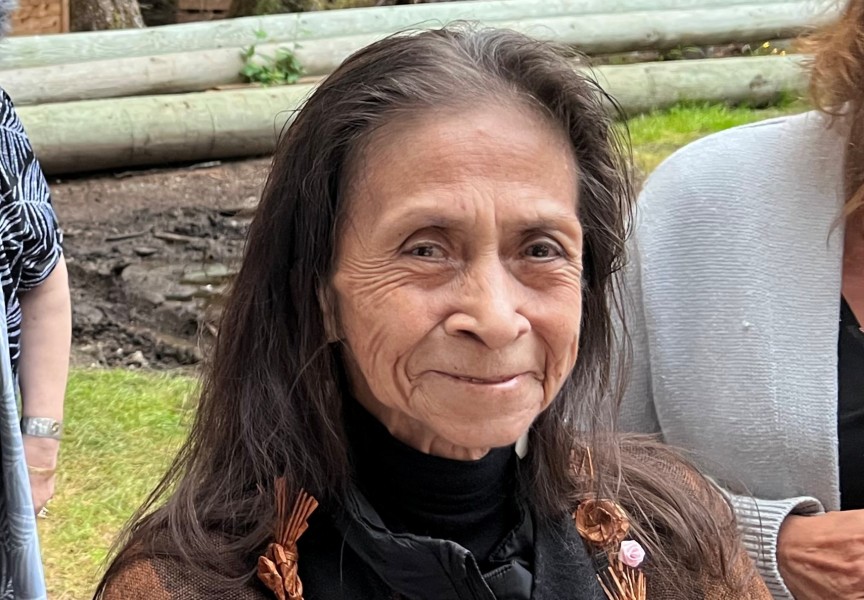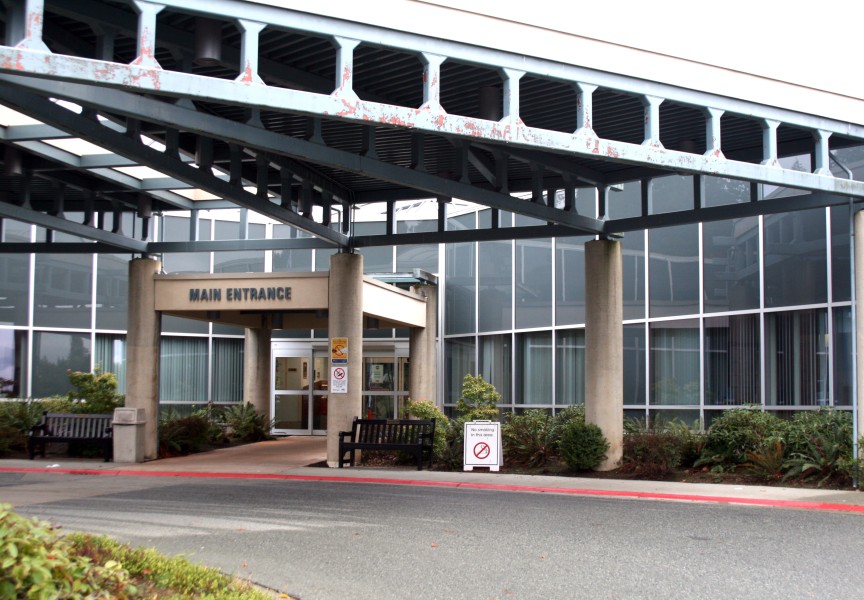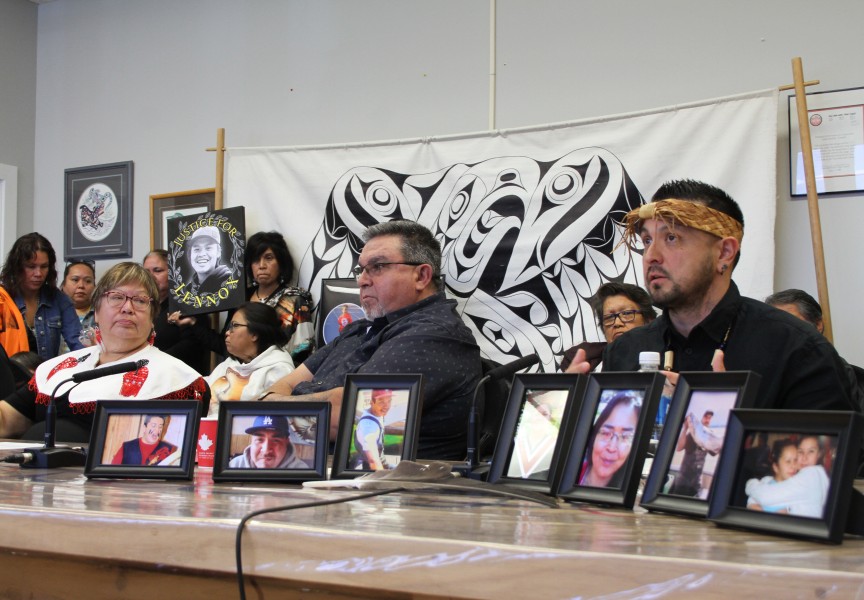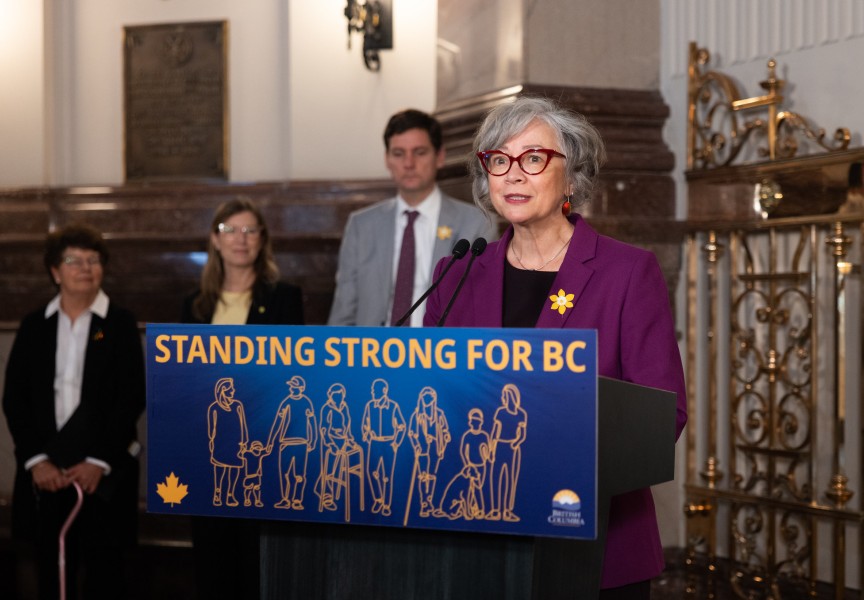Island Health is apologizing to a Hesquiaht family for an elder’s treatment at West Coast General over the last two months of his life.
The family of the late Pat Charleson Jr. appeared at the hospital’s entrance on Nov. 2 before approximately 100 people, delivering a letter to Island Health executives that chronicles allegations of mistreatment. The letter describes inconsistent care towards the Hesquiaht elder, the excessive administration of painkillers, a disregard for traditional Indigenous medicine - and even what could be perceived as a bribe from the physician overseeing Pat Charleson Jr.’s treatment.
“My father was our protector for all these years, we couldn’t even protect him through this,” said Pat Charleson III, whose father passed on Feb. 25, 2023 while at West Coast General at the age of 72.
Pat. Jr. was living in Hot Springs Cove when he fell while getting out of bed, injuring his knees against the wall.
“He slipped in the bedroom,” said Pat III. “His knee jarred into the wall and his knee buckled. He went to the hospital and had fluid buildup in his knees.”
Pat Jr. was transferred from Tofino General to a hospital in Nanaimo, where he stayed for two weeks before being moved again to the medical facility in Port Alberni on Dec. 14.
When Pat III came to West Coast General to check on his father, he recalls finding the elder hanging off the side of the bed, grasping the rails and sweating heavily as nurses remained out in the hallway.
On Dec. 31, after being able to stand and converse with visitors on the day before, the father didn’t get out of bed, said his son. The family became worried that the elder was receiving too much pain medication, which they said was being given when Pat Jr. wasn’t awake.
Pat III then received a phone call from the doctor overseeing his father’s care, which brought shocking news. He was told his father had just a day or two to live.
After hearing the family’s concerns over the phone call, Pat Jr. was given an IV to flush out the pain medication, which caused him to awaken after 15 minutes, according to Pat III.
Pat III then went back to Hot Springs Cove for about a week, his brother and sister remaining in Port Alberni.
“We ran out of money from the First Nations Health Authority,” he said. “I went home to try and make money.”
Just before arriving in Hot Springs Cove, Pat III got another call from the doctor, who explained that the father was dehydrated and that they couldn’t get an IV in him. But the elder’s kidneys and white blood cell count was normal, and the doctor told Pat III that no more infection could be detected in the blood.
When Pat III eventually returned to his father’s hospital room, he said the doctor gave him an envelope with a cheque for $7,000, asking that this exchange remain a secret between the two of them.
“I was really unsure to accept it or not,” said Pat III, who feared that not accepting the money could bring consequences. “I held onto it for about a week. I felt funny.”
Feeling stuck, the son did cash the cheque, but he informed the hospital administration about the money.
“The administration didn’t even know we got it,” said Pat III.
By this time, Pat. Jr. was developing severe bed sores. The family began using traditional Indigenous medicine on it. Even though this appeared to be working on the wound, hospital staff discarded the traditional medicine, said Pat III.
Shortly before his death, Pat Jr. had developed a flesh wound at the bottom of his torso so severe that the tailbone was exposed, as seen in pictures shown to Ha-Shilth-Sa. The elder also had a buildup of fluid in his lungs, said Pat III.
Before entering the hospital, Pat. Jr. didn’t have a wound at his tailbone, but had suffered from a leg ulcer, said his son.
“That was for four or five years,” said Pat III. “He was borderline diabetes, it was hard for him to heal.”
In responding to the family’s concerns, Dawn Thomas, Island Health’s vice-president of Indigenous Health, acknowledged that racism still exists in the health authority’s hospitals.
“I want to apologize on behalf of Island Health for the experiences your late father had at this hospital,” she said to the family. “This should never happen in our institutions and our hospitals. We know that there is still racism alive and well at hospitals. We are early on in our journey and acknowledge that we have work to do.”
Over three years ago the B.C. Ministry of Health commissioned a study into discrimination in the healthcare system, which resulted in the release of In Plain Sight in late 2020. This report detailed prevalent and pervasive instances of systemic discrimination against Indigenous people in medical facilities. Former residential school students are particularly vulnerable, as the institutional setting of a hospital can trigger childhood memories, noted the report.
Pat Charleson Jr. was a residential school survivor.
“We understand that racism is still alive and well, the family is saying, ‘No more’,” said Mariah Charleson, the Nuu-chah-nulth representative on the First Nations Health Council. “Hopefully we can move forward to make changes to ensure that nobody else experiences what Pat experienced while he was here.”
The matter will now go to Island Health’s Patient Care Quality Office, which looks into specific complaints regarding care at medical centres. In consultation with the family, the office will launch an investigation and question staff who took part in the care of Pat Charleson Jr. The process is not punitive, but seeks answers about the care provided in order to improve practices at the hospital in the future, according to Island Health.
However, if matters of egregious misconduct are identified, this would go to the relevant college or union representing the medical professionals in question.
“Days like today have extreme significance for us,” said Max Jajszczok, Island Health’s executive director of operations for Rural/Remote Strategy. “We absolutely have a commitment in Island Health, as healthcare providers generally, to be able to learn from these experiences and work together, to be able to build upon our ability of being able to provide culturally safe and welcoming spaces for everybody.”
Jajszczok also apologized to the family on behalf of Island Health.
“I’m very much looking forward to working closely in partnership as we build upon our programs and services so that these experiences aren’t experienced by others in the future,” he said.

